I'm starting to work with OpenMP and I follow these tutorials:
I'm coding exactly what appears on the video, but instead of a better performance with more threads I get worse. I don't understand why.
Here's my code:
#include <iostream>
#include <time.h>
#include <omp.h>
using namespace std;
static long num_steps = 100000000;
double step;
#define NUM_THREADS 2
int main()
{
clock_t t;
t = clock();
int i, nthreads; double pi, sum[NUM_THREADS];
step = 1.0/(double)num_steps;
omp_set_num_threads(NUM_THREADS);
#pragma omp parallel
{
int i, id, nthrds;
double x;
id = omp_get_thread_num();
nthrds = omp_get_num_threads();
if(id == 0) nthreads = nthrds;
for(i=id, sum[id]=0.0; i < num_steps; i = i + nthrds)
{
x = (i+0.5)*step;
sum[id] += 4.0/(1.0+x*x);
}
}
for(i = 0, pi=0.0; i<nthreads; i++) pi += sum[i] * step;
t = clock() - t;
cout << "time: " << t << " miliseconds" << endl;
}
As you can see, it's exactly the same as in the video, I only added a code to measure an elapsed time.
On the tutorial, the more threads we use the better a performance.
In my case, that doesn't happen. Here are the timing I got:
1 thread: 433590 miliseconds
2 threads: 1705704 miliseconds
3 threads: 2689001 miliseconds
4 threads: 4221881 miliseconds
Why do I get this behavior?
-- EDIT --
gcc version: gcc 5.5.0
result of lscpu:
Architechure: x86_64
CPU op-mode(s): 32-bit, 64-bit
Byte Order: Little Endian
CPU(s): 8
On-line CPU(s) list: 0-7
Thread(s) per core: 2
Core(s) per socket: 4
Socket(s): 1
NUMA node(s): 1
Vendor ID: GenuineIntel
CPU family: 6
Model: 60
Model name: Intel(R) Core(TM) i7-4720HQ CPU @ 2.60Ghz
Stepping: 3
CPU Mhz: 2594.436
CPU max MHz: 3600,0000
CPU min Mhz: 800,0000
BogoMIPS: 5188.41
Virtualization: VT-x
L1d cache: 32K
L1i cache: 32K
L2 cache: 256K
L3 cache: 6144K
NUMA node0 CPU(s): 0-7
-- EDIT --
I've tried using omp_get_wtime() instead, like this:
#include <iostream>
#include <time.h>
#include <omp.h>
using namespace std;
static long num_steps = 100000000;
double step;
#define NUM_THREADS 8
int main()
{
int i, nthreads; double pi, sum[NUM_THREADS];
step = 1.0/(double)num_steps;
double start_time = omp_get_wtime();
omp_set_num_threads(NUM_THREADS);
#pragma omp parallel
{
int i, id, nthrds;
double x;
id = omp_get_thread_num();
nthrds = omp_get_num_threads();
if(id == 0) nthreads = nthrds;
for(i=id, sum[id]=0.0; i < num_steps; i = i + nthrds)
{
x = (i+0.5)*step;
sum[id] += 4.0/(1.0+x*x);
}
}
for(i = 0, pi=0.0; i<nthreads; i++) pi += sum[i] * step;
double time = omp_get_wtime() - start_time;
cout << "time: " << time << " seconds" << endl;
}
The behavior is different, although I have some questions.
Now, if I increase the number of threads by 1, for example, 1 thread, 2 threads, 3, 4, ..., the results are basically the same as previous, the performance gets worse, although if I increase to 64 threads, or 128 threads I get indeed better performance, the timing decreases from 0.44 [s] (for 1 thread) to 0.13 [s] ( for 128 threads ).
My question is: Why I don't have the same behaviour as in the tutorial?
2 threads get better performance than 1,
3 threads get better performance than 2, etc.
Why do I only get better performance with much bigger amount of threads?
